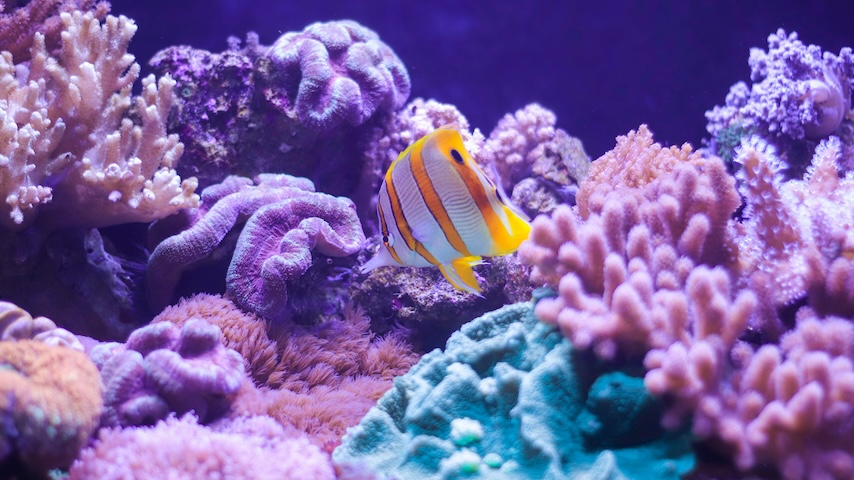Ecologically Critical Coral Species Will Not Adapt to the Warming We’re Currently Heading Toward
Photo by Giulia Salvaterra/UnSplash
The last time we checked in on coral research, the news was good (well, better than usual): reef systems may actually adapt reasonably well to a certain amount of warming, a study found last month. Well, not so fast: A new study published in Science on Thursday found that one particular species — a particularly important one, in some reefs — is going to struggle to adapt to the warming currently on the menu.
“Corymbose Acropora are highly threatened by climate change, yet also provide critical ecological functions, such as reef accretion, and habitat provision,” wrote study authors led by Liam Lachs, of Newcastle University in the U.K. They used something called an eco-evolutionary model to examine how the coral reefs in the small Pacific island nation of Palau will respond to various changes in temperature, and how well this particular could weather the changes. The answer is… not awesome.
“Given current policies, a more-likely emissions scenario would yield ~3 °C of warming, leading modelled populations to undergo severe declines and remain in depleted states,” the authors wrote. But just like last month’s study, there is some adaptive ability in these organisms: at or below 2 degrees C of warming — the stated goal of the Paris Agreement — the Acropora corals “can persist at healthy levels.” And even at that 3 degree mark, heat tolerance of the coral will increase via natural selection, which would leave a tiny window open to save them over the long run.
And if the world backslides on its progress, and somehow soars past even that 3-degree mark? “[U]nder an extreme–albeit unlikely–emissions scenario, local extinction seems to be inevitable.”
I’m glad there are scientists out there studying this of course, but there really isn’t a rosy future for the world’s coral reefs out there waiting around another study’s bend. They may be salvageable, to some small extent, and if the research helps point the way then great. In the end though, every coral study concludes the same thing; as Lachs and his colleagues wrote, “Our work reinforces the call to both severely reduce global greenhouse gas emissions and conduct strategic local management of reefs.”